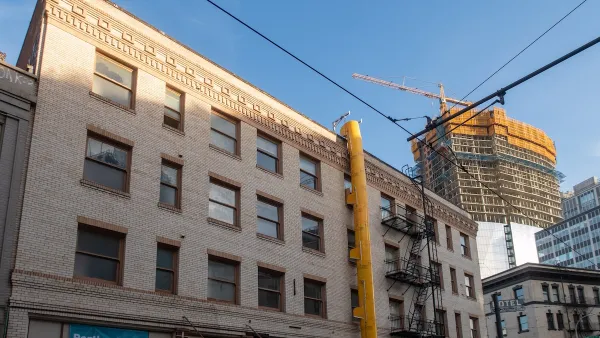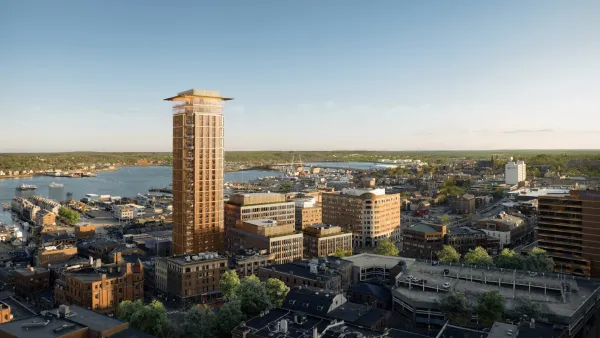Daniel Lerch, author of "Post Carbon Cities" presents his thoughts for a new California Dream in a 'post carbon future' in which cars still exist but are used sparingly due to urban planning that reduces their necessity. He looks toward Portland.
"For years we've tried to limit sprawl and promote transit, bicycling and walking – first in the name of conservation and quality of life, more recently to fight global warming. Today peak oil (the looming high point of global oil production) and the end of cheap oil make it more urgent than ever to reduce our dependence on cars.
There's a problem, though. We're stuck with the landscape we've built over the past 60 years, much of which is literally uninhabitable without a car.
This underlines an essential point for the real transportation future of California. The car will not disappear: It's simply too useful. But how we use cars, how we plan our economies and communities around cars and even how we build cars, all have to change.
California is already on the route toward breaking its ingrained car dependence with legislation like Senate Bill 375, which links energy use with transportation and land development. The challenges we face in global warming and declining oil supplies, however, require that we do more than just tinker around with zoning codes and transportation funding. We need to fundamentally rethink the way we do urban planning and the way we fund public infrastructure, and fast.
Portland, Ore., remains the best American example of this fundamental rethinking, with its vibrant downtown, pioneering light-rail system and strict constraints on suburban sprawl."
Thanks to MTC-ABAG Library
FULL STORY: The Conversation: How do we become less dependent?

Planetizen Federal Action Tracker
A weekly monitor of how Trump’s orders and actions are impacting planners and planning in America.

Maui's Vacation Rental Debate Turns Ugly
Verbal attacks, misinformation campaigns and fistfights plague a high-stakes debate to convert thousands of vacation rentals into long-term housing.

Restaurant Patios Were a Pandemic Win — Why Were They so Hard to Keep?
Social distancing requirements and changes in travel patterns prompted cities to pilot new uses for street and sidewalk space. Then it got complicated.

In California Battle of Housing vs. Environment, Housing Just Won
A new state law significantly limits the power of CEQA, an environmental review law that served as a powerful tool for blocking new development.

Boulder Eliminates Parking Minimums Citywide
Officials estimate the cost of building a single underground parking space at up to $100,000.

Orange County, Florida Adopts Largest US “Sprawl Repair” Code
The ‘Orange Code’ seeks to rectify decades of sprawl-inducing, car-oriented development.
Urban Design for Planners 1: Software Tools
This six-course series explores essential urban design concepts using open source software and equips planners with the tools they need to participate fully in the urban design process.
Planning for Universal Design
Learn the tools for implementing Universal Design in planning regulations.
Heyer Gruel & Associates PA
JM Goldson LLC
Custer County Colorado
City of Camden Redevelopment Agency
City of Astoria
Transportation Research & Education Center (TREC) at Portland State University
Jefferson Parish Government
Camden Redevelopment Agency
City of Claremont




























